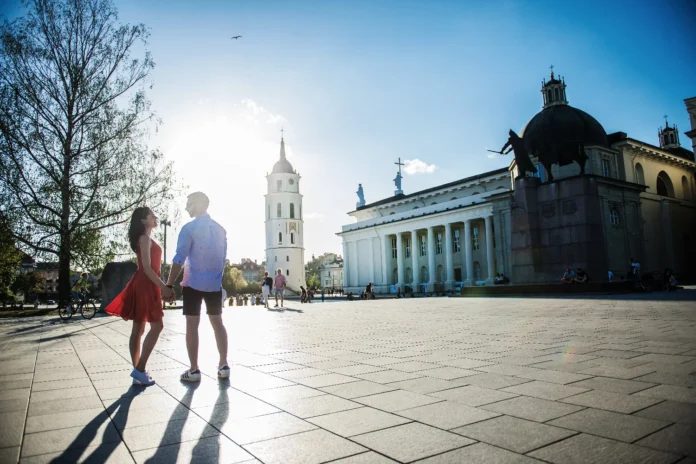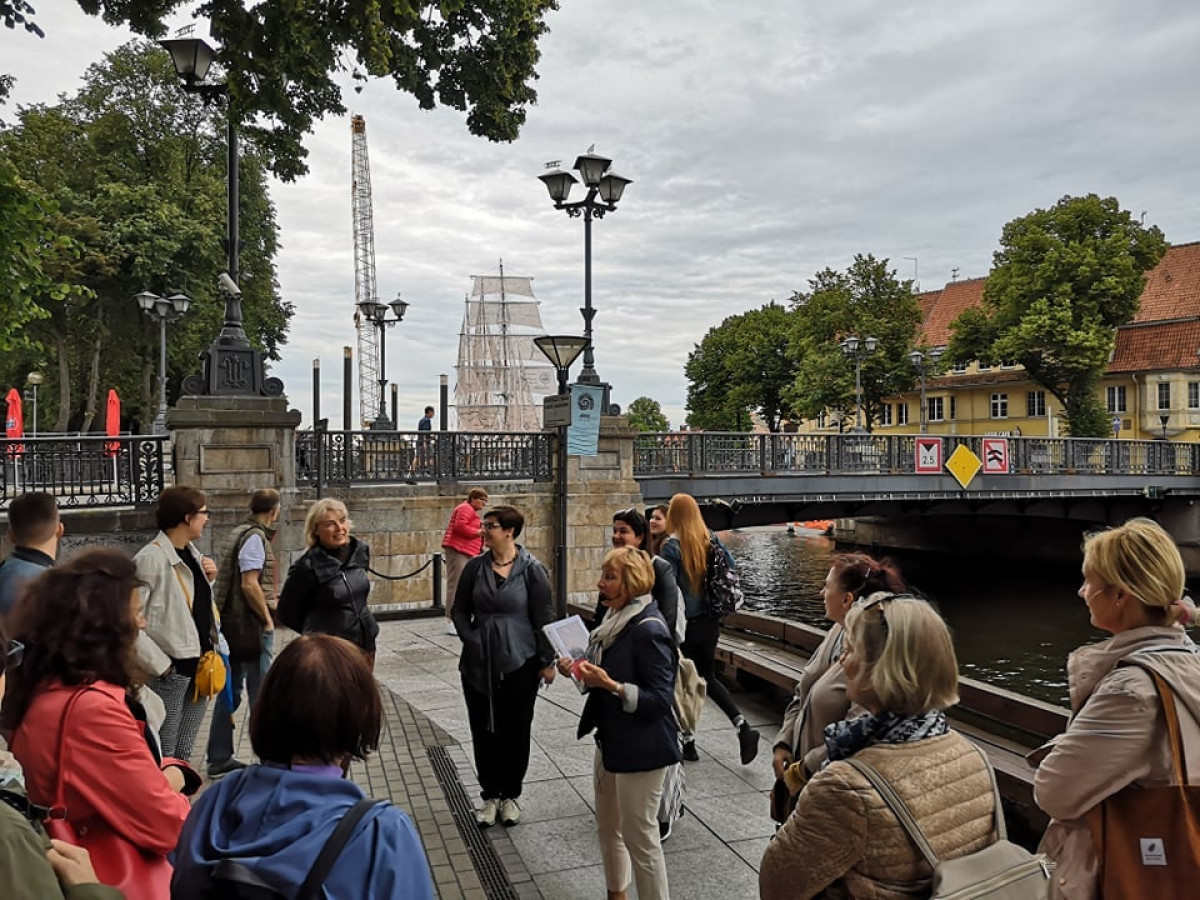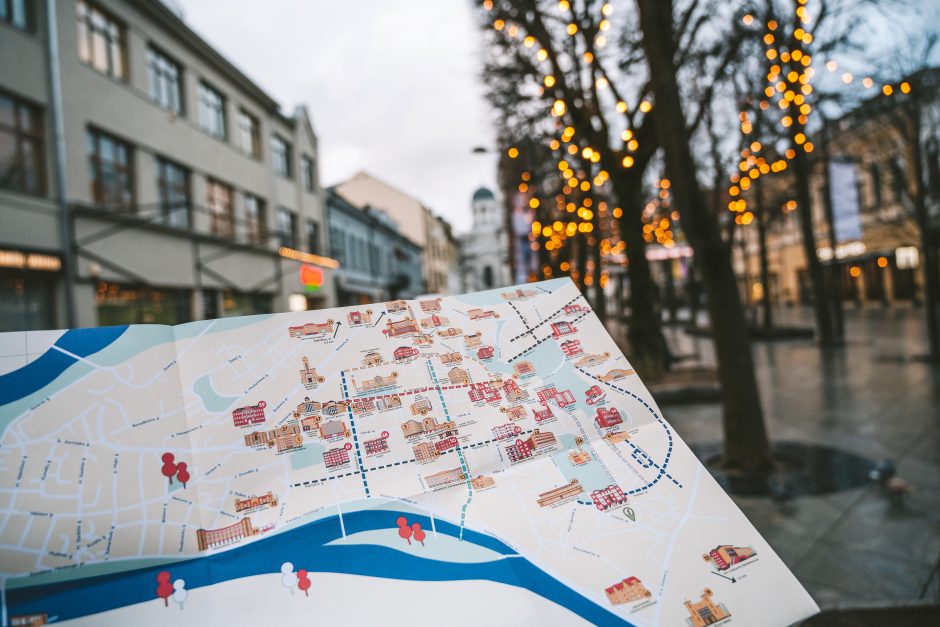
Going to Lithuania? Here’s what’s happening
The war in Ukraine is scaring tourists away from the Baltic states – many are cancelling or postponing their planned trips, fearing it could be unsafe in Lithuania, Latvia, and Estonia.
The port of Klaipėda was planning to welcome 80 cruise ships this season, but now the number has dropped to 70. The adjustment is attributed to the Russian war in Ukraine, according to tourism experts.
Romena Savickienė, director of the Klaipėda Tourism Information Centre said that cruise lines are refusing to visit St Petersburg and send more ships to other Baltic ports, including Klaipėda.
 With the start of summer, foreign visitors are increasingly coming to the port city by other means of transport. According to Savickenė, over the last decade the majority of tourists in Klaipėda have been Germans, about 40 percent of all visitors to the city. Hotels and other service providers see groups are cancelling reservations or postponing trips. “Every message that the Baltic countries are in danger, that the Baltic countries could be attacked, has a very big impact on the tourism business,” says Savickienė.
With the start of summer, foreign visitors are increasingly coming to the port city by other means of transport. According to Savickenė, over the last decade the majority of tourists in Klaipėda have been Germans, about 40 percent of all visitors to the city. Hotels and other service providers see groups are cancelling reservations or postponing trips. “Every message that the Baltic countries are in danger, that the Baltic countries could be attacked, has a very big impact on the tourism business,” says Savickienė.
German citizens also accounted for a significant part of the tourist arrivals in Neringa on Lithuania’s picturesque Curonian Spit. According to Edita Lubickaitė, director of the Nida Tourism Information Centre, there has been a decrease in the number of groups coming from this country, but individual vacationers from Germany are still interested.
“German groups visit, but they are more day trips than overnight stays. Compared to the pandemic period, Germans are coming in bigger numbers, but not for longer periods, as was usual before the pandemic,” says Lubickaitė.
Strong competition for tourists has developed. Germany is apparently spending millions of euros on promoting local tourism, which it calls ecotourism. “Now that Germany is competing with other countries for those tourists, it is a perfect opportunity for them to say that the Baltic countries are unsafe, that the Baltic countries are very close to war, that their neighbours are very militarized. And it’s regrettable, but it’s working because we have a lot of German groups who have refused to come until July,” said Neringa Mayor Darius Jasaitis. But it is not only German citizens who are refusing to travel to Lithuania in the wake of Russia’s war in Ukraine.
Milda Plepytė-Rainienė, head of the Lithuanian Tourism Association. She believes that the government should allocate more funds to make Lithuania attractive to tourists. Greater resources should be allocated to marketing and communication.
 Olga Gončarova, acting director of Travel Lithuania, an agency run by the Ministry of Economy, says that in order to attract tourists, Lithuania is launching a campaign to show that the country is not only safe, but also has a lot to offer. She noted that a new communication campaign “Plan an Ordinary day in Lithuania” has been launched, aiming at main markets – Poland, Germany, Great Britain, Israel, and other countries. “It will invite people to see Lithuania from a different perspective, to see that we are living a normal life, that there are no hostilities going on here. We hope to help the tourism business to grow again and to return to the levels that existed before the pandemic.”
Olga Gončarova, acting director of Travel Lithuania, an agency run by the Ministry of Economy, says that in order to attract tourists, Lithuania is launching a campaign to show that the country is not only safe, but also has a lot to offer. She noted that a new communication campaign “Plan an Ordinary day in Lithuania” has been launched, aiming at main markets – Poland, Germany, Great Britain, Israel, and other countries. “It will invite people to see Lithuania from a different perspective, to see that we are living a normal life, that there are no hostilities going on here. We hope to help the tourism business to grow again and to return to the levels that existed before the pandemic.”
According to experts, such measures are already bearing fruit. Outbound tourism is growing significantly this year after the pandemic and may reach pre-pandemic levels by the end of the year.
According to tourism experts, the situation of inbound tourism is similar in other Baltic countries, Latvia and Estonia. The Lithuanian Tourism Association proposes to organize a joint communication campaign between the three countries in an attempt to attract foreign tourists to come and spend their holidays in Lithuania, Latvia, and Estonia. LRT.lt





























